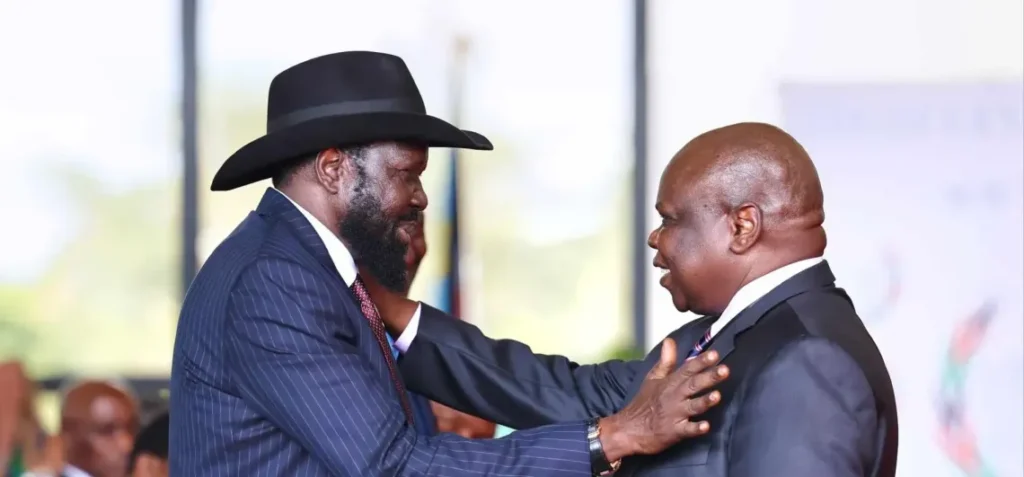The South Sudan peace talks that were almost reaching completion in Kenya, risk collapsing over the government demanding renegotiation of some protocols signed in July.
The Kenya-led Tumaini (hope) Initiative started in Nairobi on May 9 but halted in July after some government representatives walked out, arguing that eight protocols would undermine the provisions of the 2018 peace deal.
Officially known as the Revitalized Peace Agreement, the 2018 deal was signed between President Salva Kiir’s SPLM, SPLM-IO led by First Vice President Riek Machar and other political factions.
The negotiations in Nairobi were meant to bring in the opposition groups that had stayed away from the 2018 deal. The holdout groups who are part of the Tumaini Initiative include the Real-Sudan People’s Liberation Movement, led by Pagan Amum, the South Sudan United Front, led by Paul Malong, the former chief of staff of the South Sudan People’s Defense Force (SSPDF), and the South Sudan People’s Movement/Army (SSPM/A), led by Gen Stephen Buoy Rolnyang.
The initialed documents include protocols on humanitarian access and support, trust and confidence building, permanent ceasefire, security arrangements and reforms, communal conflicts, armed civilians and land disputes, and guarantors.
On Monday, a government delegation representing a mechanism called the High-Level Standing Committee for South Sudan, led by Cabinet Affairs Minister Martin Elia Lomuro, met with Kenya’s President William Ruto in Nairobi where it conveyed a message from President Kiir.
The delegation included Petroleum Minister Puot Kang and veteran politician Dr. Lam Akol, Humanitarian Affairs Minister Albino Akol Atak and SPLM Party Secretary General Peter Lam Both.
Multiple sources, who preferred anonymity, informed Radio Tamazuj about what transpired in the closed-door meeting between the South Sudan government delegation, the Kenya-led mediation and President Ruto in Nairobi on Monday.
“The government delegation conveyed a four-page document from President Kiir to President Ruto. The letter also had a 54-page attachment in which the South Sudan government explained its concerns about some mechanisms in the Tumaini Initiative protocols,” one of the sources revealed.
It added: “The 54-page document contains many concerns about the mechanisms of the Tumaini Initiative such as the National Leadership Council (NLC), the National Implementation Oversight Commission (NIOC) and other bodies. The government delegation said anything already stipulated in the Revitalized Agreement should not be mentioned again in the Tumaini protocols.”
According to the government delegation, another source said, the Tumaini Initiative should be an annex to the 2018 Peace Agreement and not replace its mechanisms. He added that the government wanted the current peace talks to complement and not obliterate the 2018 peace deal.
When asked about the response of the Kenyan President, one of the sources said: “The Kenyan leader referred the matter to the government of South Sudan to meet the holdout groups to iron out any pending issues. Also, President Ruto is expected to visit Juba at the invitation of President Salva Kiir.”
It remains unclear if the holdout opposition groups will accept to renegotiate some of the contested peace mechanisms.
In September, the South Sudan government postponed its General Election, originally planned for December 2024, to December 2026. The postponement followed a history of failed attempts to conduct elections in the country.
A transitional unity government, established in February 2020 under a 2018 Revitalized Peace Agreement, was tasked with overseeing the transition and ensuring free and fair elections.
Members of the international community have repeatedly expressed disappointment at the perpetual transition and conflicts in South Sudan.




